How about some time travel with your cup of coffee? That’s what you can expect at kissaten, the retro Japanese coffee shops that are enjoying a new lease of life.
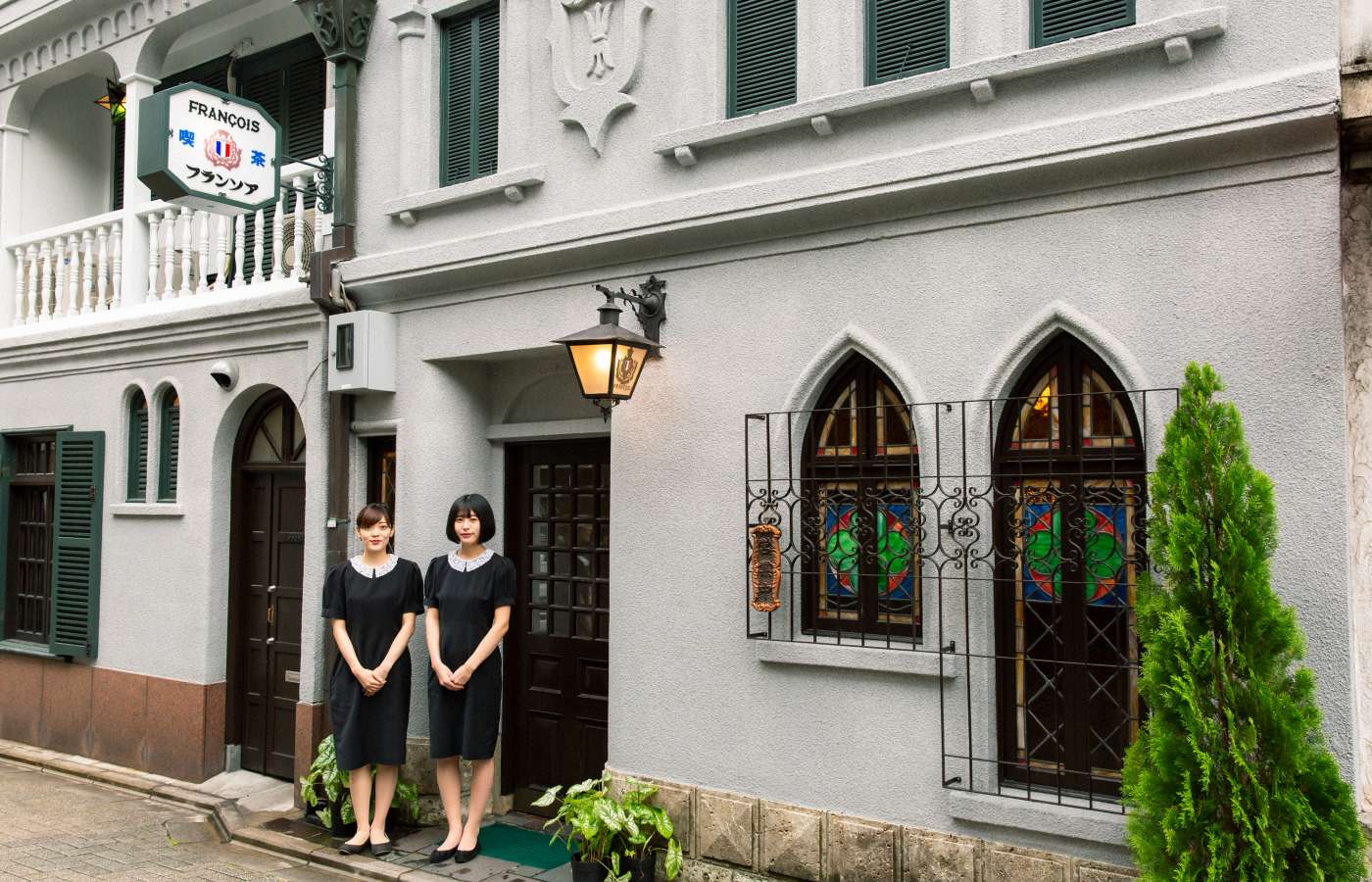
Step back in time at Kyoto’s François, a kissaten that’s been open since 1934.
Photo credit: Salon de thé François
Kissaten first sprang up around Japan in the early 20th century, as an alternative to the French-style cafes that had become popular at the time. The word “kissa” originally referred to drinking tea, but the shops soon also became associated with coffee.
They really caught on during the Showa era, which ran from 1926 to 1989. At their peak, there were over 150,000 kissaten nationwide.
Kissaten come in many varieties: while some are mostly gathering places for locals, others take their coffee very seriously indeed, and draw pilgrims from far afield. During the 1960s, the term junkissa came into vogue, to distinguish “pure” (jun) coffee shops that didn’t serve alcohol.
Coffee snobs, take note: the quality varies widely, but the general preference is for darker roasts. Don’t expect to find any espresso-based drinks on the menu, either. Pour-over and syphon coffee are the preferred brewing methods.
It’s common for kissaten to roast their own beans—so if you catch a waft of Arabica while walking down the street, just follow your nose.
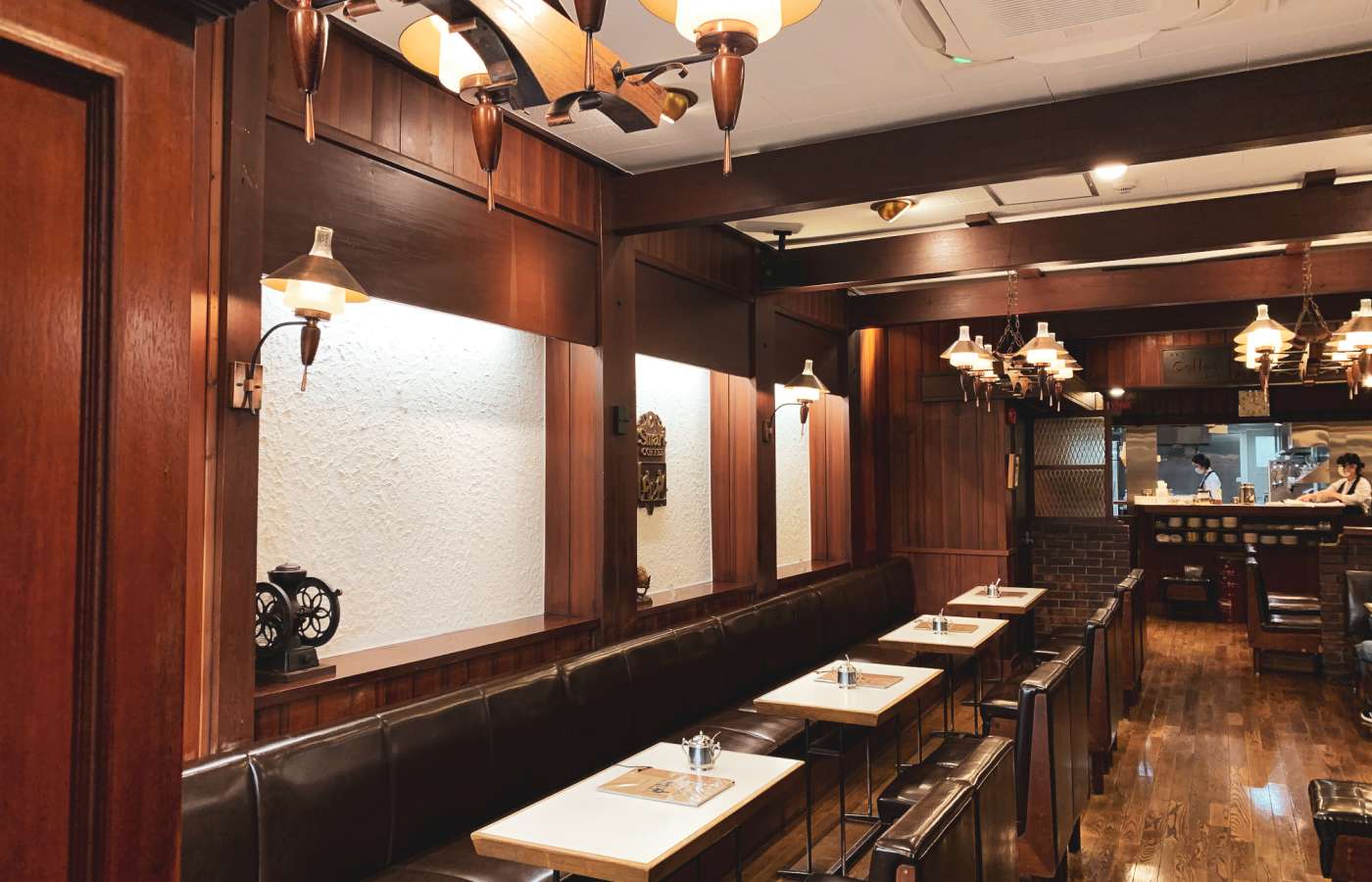
Established in 1932, Kyoto's Smart Coffee continues to roast their own beans on the premises.
Photo credit: Smart Coffee
There are still a few surviving jazz kissa and meikyoku kissa (classical music cafes), where patrons listen to music played on high-end audio systems, and talking is often frowned upon.
Retro food and old-fashioned ambience
The food menus at kissaten are usually fairly minimal, but tend to include hearty savory fare with a Western flavor: think sandwiches, “napolitan” spaghetti and pizza toast. You can also expect plenty of sweets, such as cheesecakes, creme caramel (caramel pudding) and ice cream sundaes.
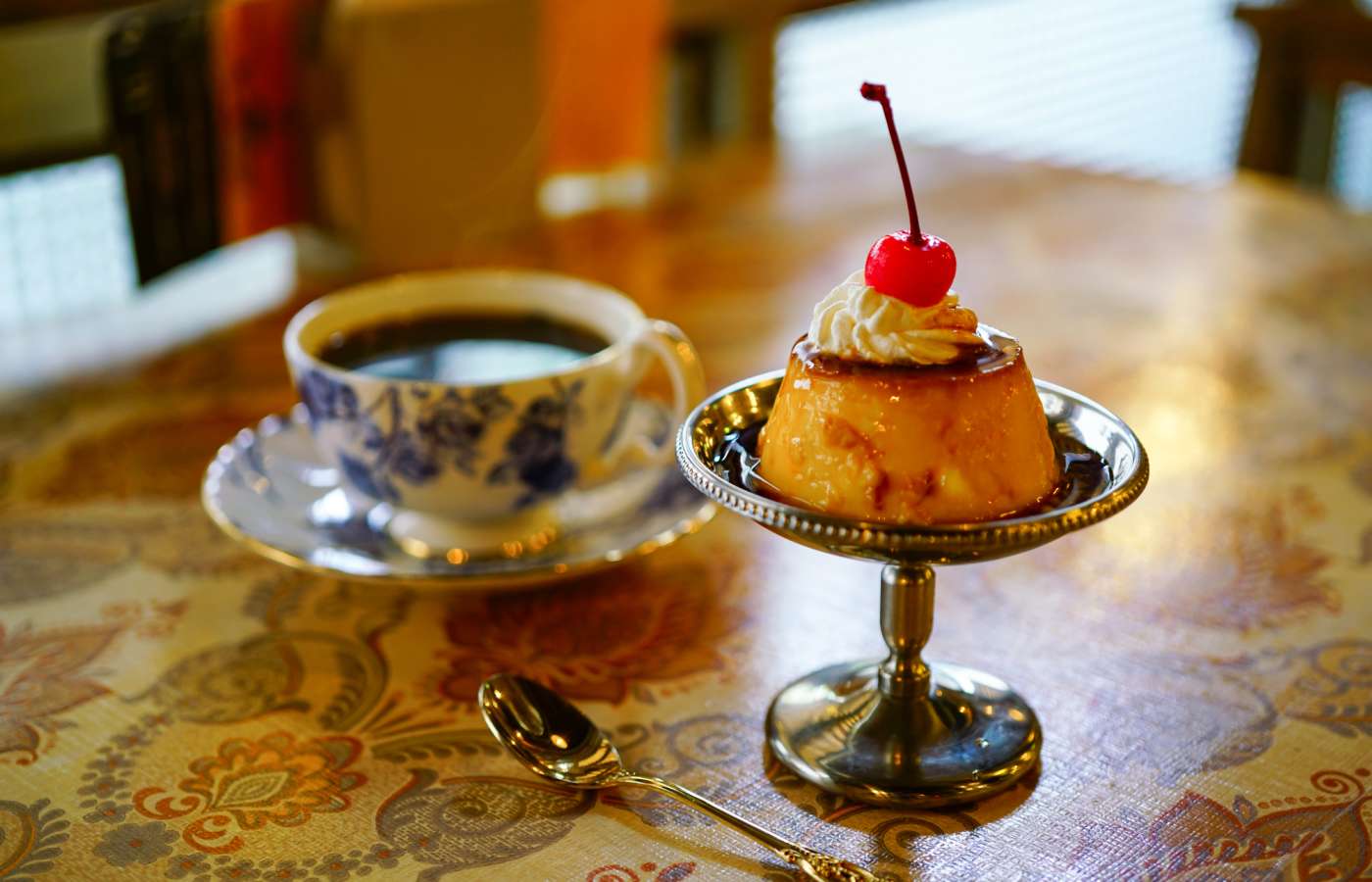
Look out for places that serve a morning set—generally available on weekdays only—where the price of a tea or coffee also gets you a small plate of food. Sometimes this just means a slice of toast and a boiled egg, but it can entail much more. The kissaten in Nagoya are particularly known for their generous breakfast deals.
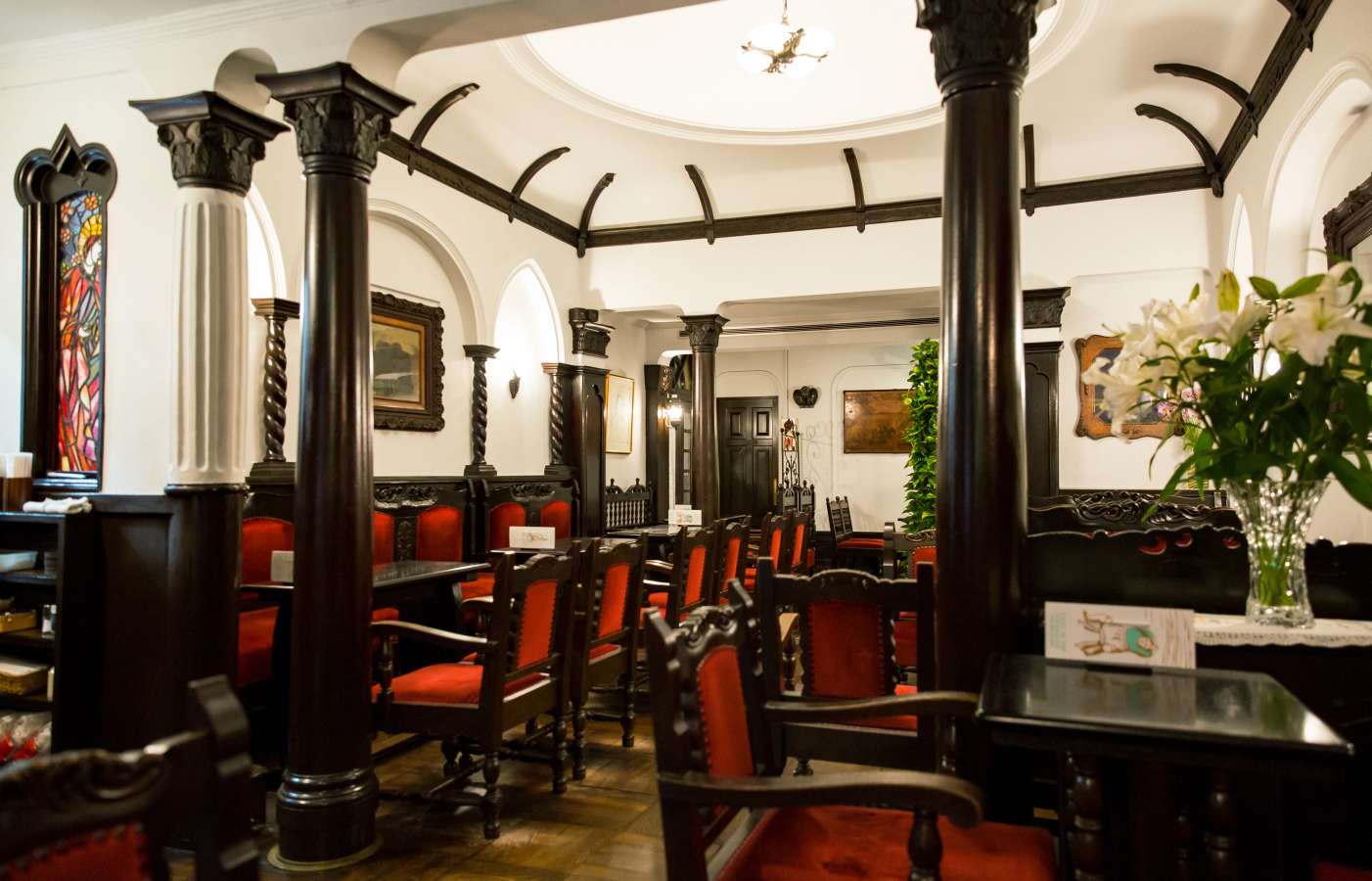
The ornate interior at François whisks you back to an earlier era.
Photo credit: Salon de thé François
Kissaten can have a time capsule feel to them, which is part of the charm. Marks of period authenticity include plush upholstery, booth seating, rococo decor and the ultimate Showa touch: a pink rotary pay phone that only takes ¥10 coins.
Inspiration for the third-wave coffee movement
While Seattle once set the tone for coffee shops worldwide, popularizing espresso drinks and flavored lattes, nowadays it’s all about the beans. The “third wave of coffee” movement takes an artisanal approach, putting the emphasis on single-origin coffees, fresh roasts and meticulous brewing techniques.
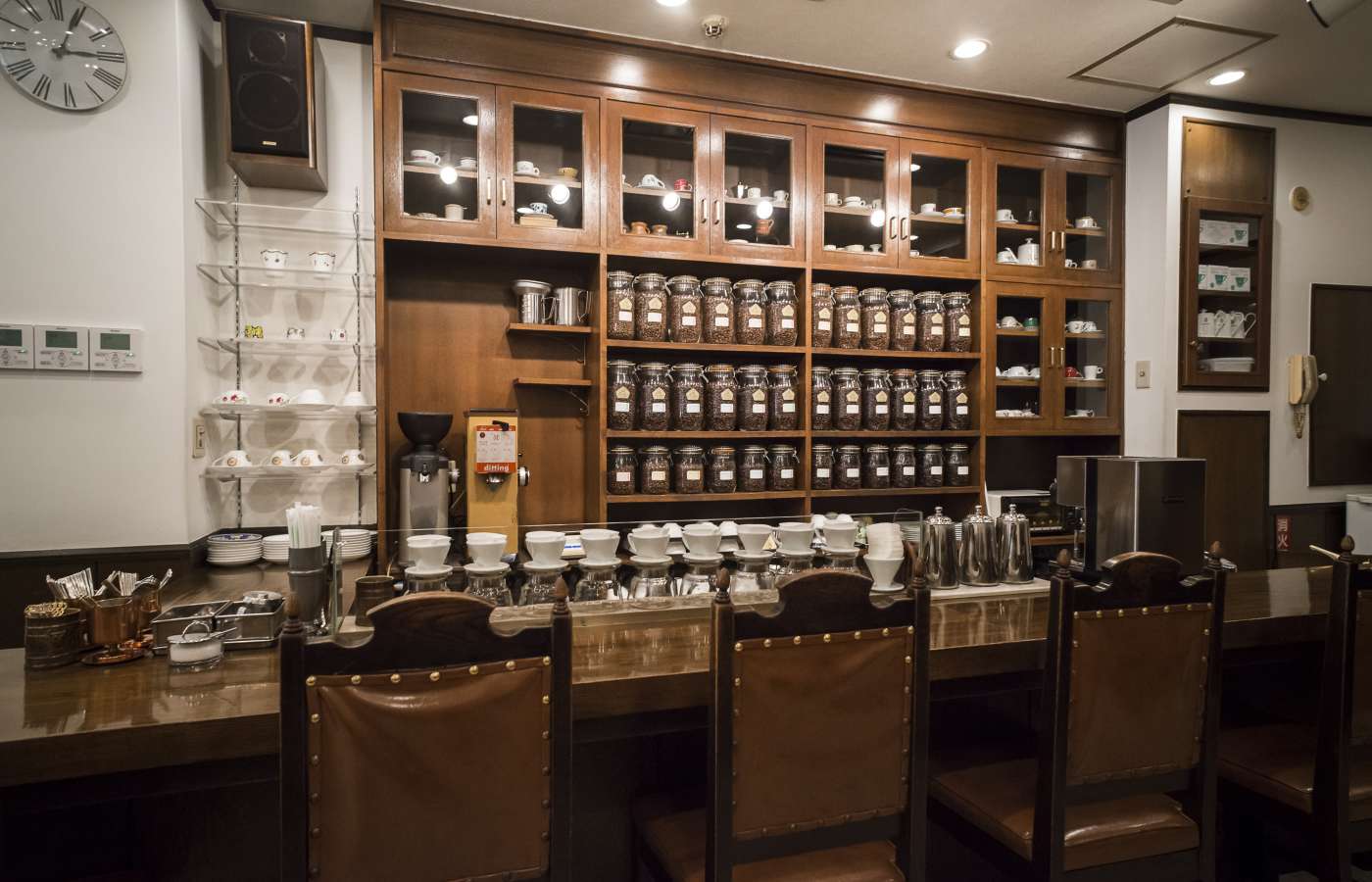
Coffee connoisseurs in search of the perfect pour-over should pull up a seat at the counter of Cafe Bach in Tokyo.
Photo credit: Cafe Bach
Some of the key players on the scene have cited high-end kissaten such as Tokyo’s Cafe Bach as a vital inspiration, both for their approach to the art of coffee and their impeccable customer service. Techniques that are now a core part of third-wave coffee culture, such as pour-over and mizudashi (cold brewing), were first perfected in Japan’s kissaten.
Updating the kissaten experience
The third wave of coffee has rekindled interest in Japan’s venerable kissaten. While a lot of the old neighborhood joints are finally succumbing to the inevitable, some have become popular with younger Instagrammers who appreciate the retro vibe, as well as coffee fans looking to learn from the masters.
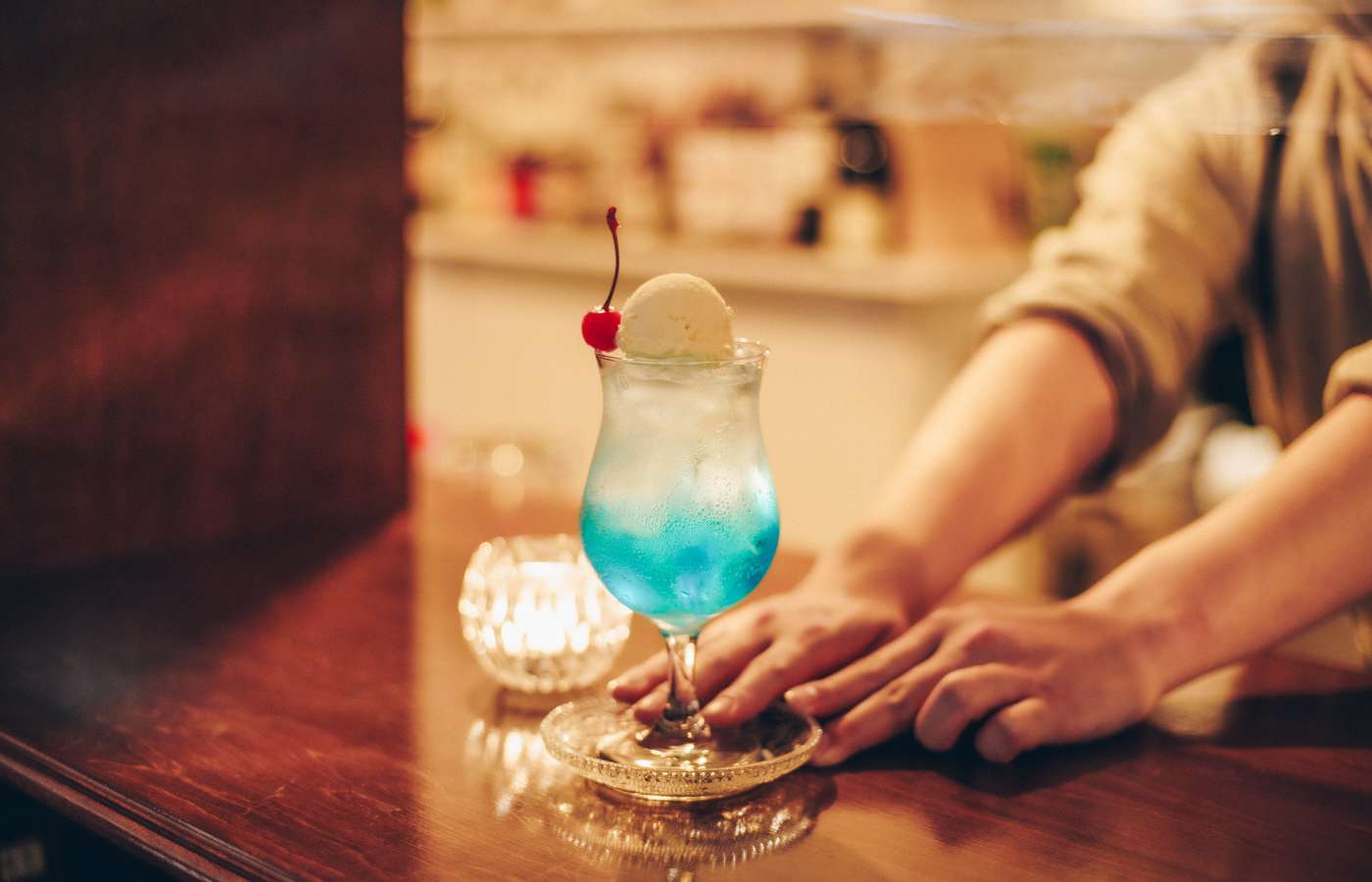
Experience a modern take on the classic kissaten at Tokyo’s Tabi Suru Kissa.
Photo credit: Tabi Suru Kissa.
You can also find a new breed of coffee shop that takes inspiration from the kissaten tradition. Their food offerings may be a little more sophisticated and their coffee more on-trend, but these modern shops also offer nostalgic staples like and hotcakes and cream soda floats—and the chance to forget the outside world for a moment.
-
About the author
Author: James Hadfield
Profile: Originally from the UK, James Hadfield has been living in Japan for nearly 20 years and still hasn’t got bored. He writes about lifestyle and culture for publications including The Japan Times and ele-king.





















































